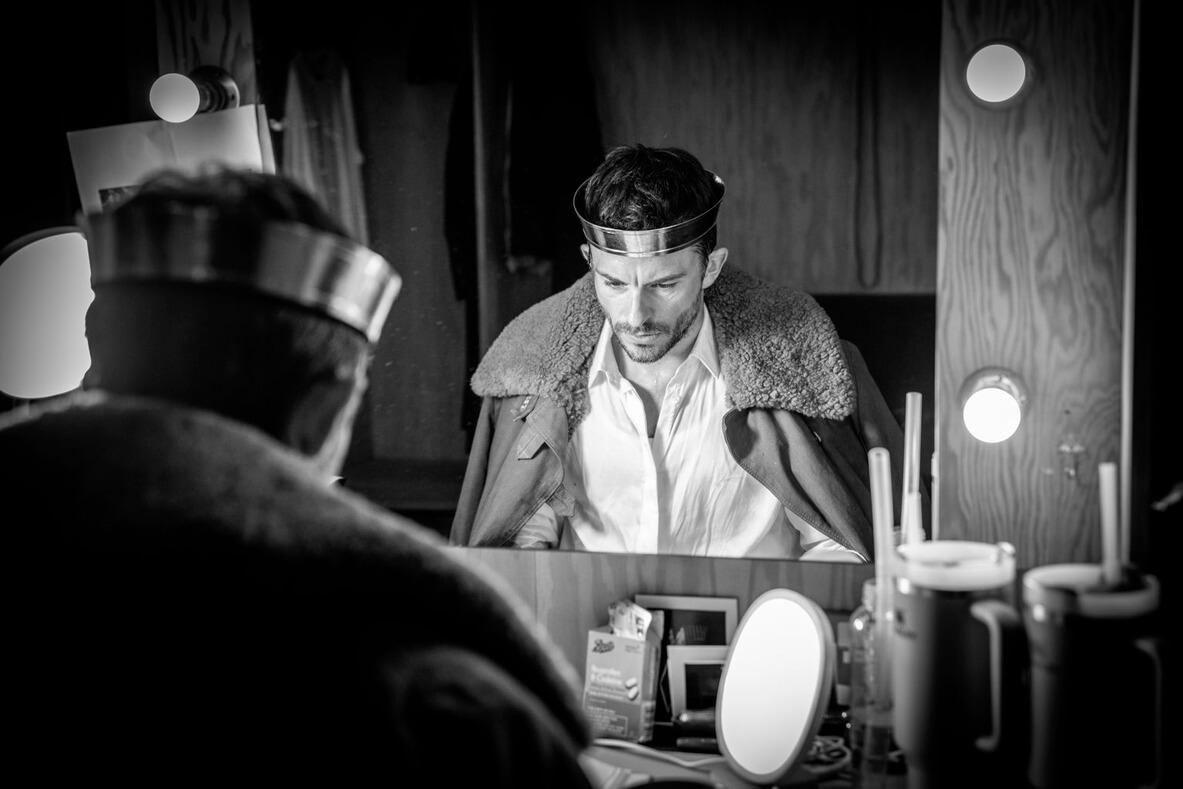The world of Bad Roads is a harsh one, in which underage girls worship brutalised soldiers and the lines between enemy, friend and lover are often blurred. A journalist is captured and abused by her sadistic tormentor. A female medic makes a perilous journey with the headless body of her lover in the car trunk. Later, a couple torments a guilt-ridden driver over the accidental killing of their prized chicken.
Natal’ya Vorozhbit’s play reminds us of Russian-Ukranian conflict, particularly of the events leading up to the annexation of Crimea by Russian authorities. The characters are heart-breaking in their humanity - they are at once passive and powerful, venomous and restorative, tender and violent. ‘What were you before the war?’ one character asks another, and the audience empathises with the lost identities - or at least, identities that have been wrapped up in war for too long.
Vorozhbit also carefully draws attention to femalenarratives during wartime and we join the ensemble on a journey to the darkest parts of female desire. One woman tells a story of how her lover is rendered impotent after suffering PTSD. Another woman (brilliantly played by Ria Zmitrowicz) uses self-sacrifice in the face of male violence and abuse so unwaveringly that her love becomes a weapon of self-preservation. It is these narratives that bring an honesty to the show – this is particularly necessary to contrast the falsity of the war environment, in which citizens and soldiers weasel, manipulate and abuse the vulnerable under the pretext of patriotism.
Camilla Clarke’s sparse set not only mirrors, but beautifully illustrates this technological war, highlighting a conflict that is both man-made yet inhumane in its brutality. Bare trees sprout from the ground, instantly contrasting the stark red chairs.
In this simplicity, however, lies my only contention with the show. With its seamless transitions and clever use of light versus dark, director Vicky Featherstone has created a crisp, ‘clean’ play. Although the show grapples with complex ideas, the presentation of these ideas are humble: the production opens with a series of verbatim-style monologues, which Vorozhbit has collated from first-hand interviews. Whilst the simple presentation of ideas allows for the emphasis to fall upon the relationships between the characters (what I love witnessing in theatre the most), there is room to push the landscape and horror of war further. Indeed, the most invasive aspect of the play is its violent language; a sadistic captor (played by Tadhg Murphy) uses frightening and explicit language to aid him in manipulating his hostage. Here, Featherstone wisely makes the decision to play out these violent scenes in blackout; to see would be overkill – Natal’ya Vorozhbit’s words are powerful enough.

 Bad Roads at the Royal Court is an unflinching examination of war’s effect on humanity, desire and relationships.
Bad Roads at the Royal Court is an unflinching examination of war’s effect on humanity, desire and relationships. 



